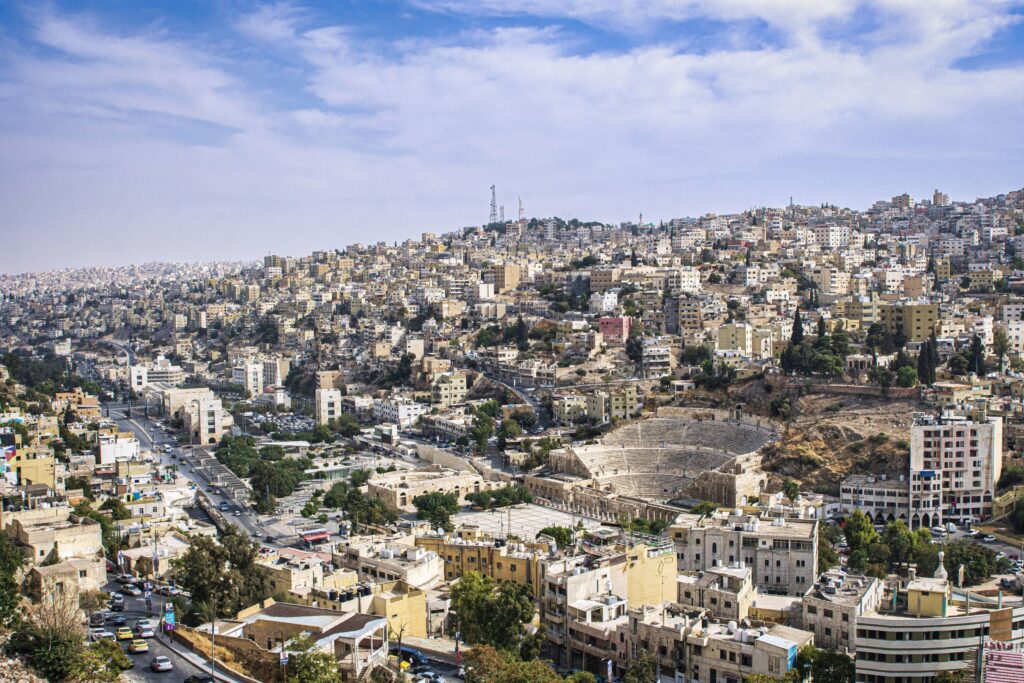Health Insurance in Jordan
Moving to Jordan
Jordan is perhaps the most relaxed of all the Middle Eastern nations, making it an ideal travel destination.
Western visitors find that they are largely free to explore the country at will, without needing to worry too much about conforming to strict Islamic culture. Alcohol and pork is freely available, for example, and the people are well-known for their warmth towards strangers.
Here in Jordan visitors can explore everything from ancient Roman temples through stunning seaside resorts to world-famous UNESCO-listed Petra.
If that weren’t enough, the Arabian Desert, which covers over half the country, provides a stunning backdrop to everyday life, having been used as a film location for both Indiana Jones and Lawrence of Arabia.
Weather in Jordan
Jordan has an intriguing climate split into a hot, dry summer and a wet, cool winter. As a result of this the climate here is normally described as “Mediterranean” rather than “desert”.
Indeed, while it is true that Jordon is largely a desert-state where summer temperatures can skyrocket to 40’C or above, best described as “stifling”, this is far from the whole story. Firstly, it is important to appreciate that as the sun goes down so the temperature begins to drop; it is therefore not unusual to need extra layers of clothing in the evenings.
Winters can be an altogether different experience in Jordon. It is not unheard of for temperatures between November and March to drop down to almost freezing. Indeed, in areas of high elevation – such as the capital city Amman – winter snow is not unheard of. This can understandably come as something of a surprise to many expats imagining the year-round dry heat of the United Arab Emirates or other Middle Eastern cohorts.
Largely speaking these annual cycles add considerable interest to living in Jordon. Many expats find that coping with the heat of a Middle-Eastern summer is much easier to bear when they know that cooler, moister weather is just over the horizon.
Weather in Jordan
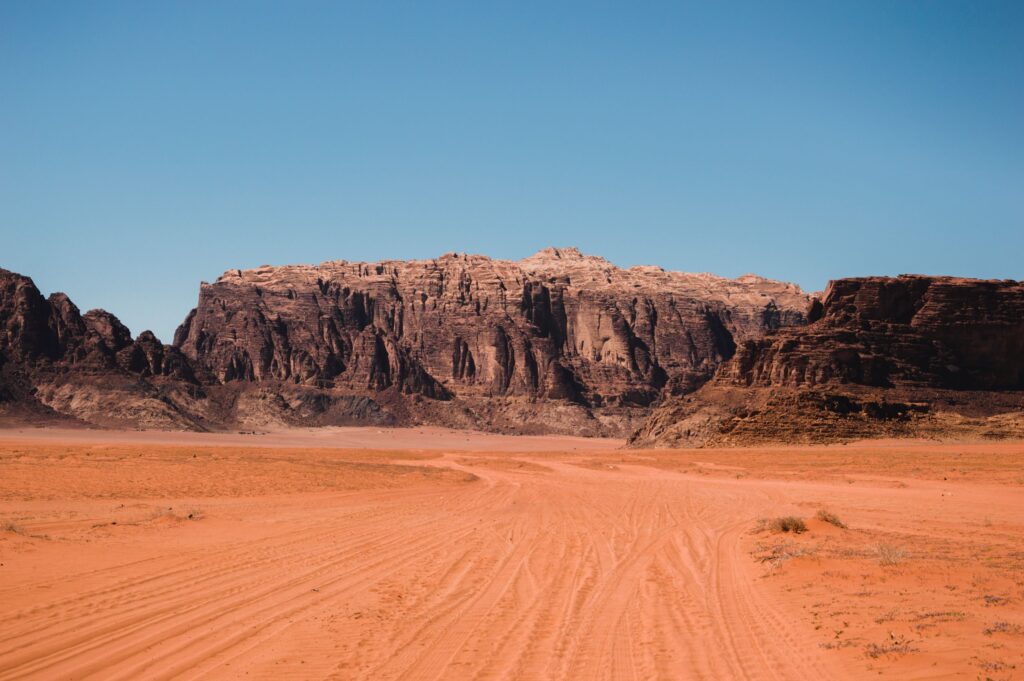
Jordan Culture
Jordan inhabits a strategically-important area in the centre of the Middle East. As a result of its proximity to the River Jordan, making access possible for millennia, the country has slowly been colonized by one ethnic group after another.
Today it serves as a unique intersection between the Arabic and Islamic worlds. Past colonizers have included great nations like the Macedonian Greeks and the Persians, leading to an intriguingly-diverse culture that has borrowed from each of these groups in turn.
These days the most prevalent factor in Jordanian culture is that of the Bedouin. This traditional group is perhaps best known for their hospitality, even towards total strangers. What this means is that expats and tourists alike can expect a classically warm welcome from locals here.
Note, however, that invitations to traditional Bedouin weddings should be treated with caution, as these events can stretch on for days on end, often reaching a solid week of singing, partying and feasting.
Visitors should further note that Jordon is a largely conservative Islamic nation. It is also, somewhat paradoxically, one of the most relaxed of all the Middle Eastern nations.
This creates a fascinating juxtaposition whereby local Jordanians attend Sharia law courts, abstain from consuming pork and alcohol and dress respectfully. In addition, public displays of affection are generally frowned upon (especially by same-sex couples) and ladies in particular should aim to dress appropriately, especially in areas of religious significance.
On the other hand, Jordan is far less prescriptive than some other Muslim nations about how visitors must act. Alcohol, for example, can be bought right across the country without penalty and tourists are largely immune from the strict Muslim rules, assuming a healthy degree of respect is shown for the native culture.
Language in Jordan
Officially speaking there is just one official language in Jordan; that of Arabic. That said, it is commonplace for English to be spoken. The more highly educated an individual is, the more likely they are to speak fluent English. This means, for example, that almost all doctors in Jordan are able to converse in English, making the expat’s life much easier.
Healthcare in Jordan
Jordan has rightfully developed a reputation for excellence in healthcare. Not only does the country offer top-of-the-range equipment and facilities but also highly-trained English-speaking doctors. As a result Jordan has become the largest site in the Middle East for medical tourism, and number five on a worldwide scale. Each year Jordan generates an estimated $1billion from such activities; much of which is reinvested into growing and expanding their world-class healthcare system.
It should come as no surprise, therefore, that visitors to Jordan can expect some of highest levels of care found anywhere; even in developed nations like the UK and USA. The only real weakness to the whole system is the potential waiting time found in publically-funded hospitals. For this reason most expats and tourists opt for one of the many high-quality private hospitals on offer.
While emergency medical treatment that does not require hospitalization is free for all, it is generally recommended that expats and visitors take out international health insurance and international travel insurance. In this way, you can be sure of receiving Western-style medical care without having to worry about the inherent costs.
Get a QuoteHealthcare in Jordan
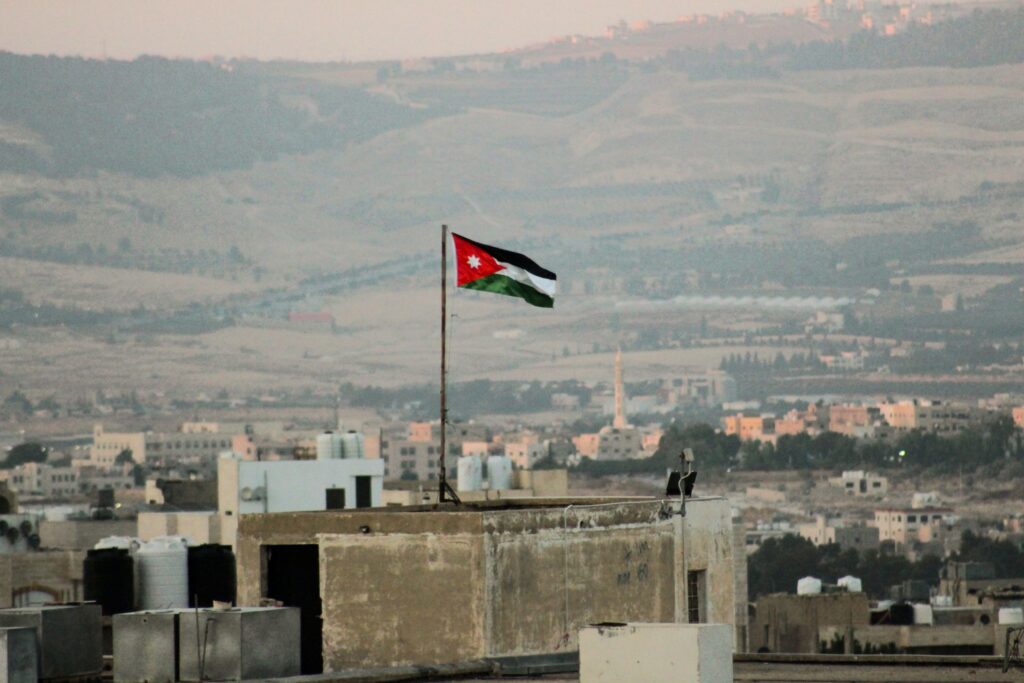
Transport in Jordan
Jordan offers a range of options for getting around the country. Lowest cost of all are the many buses which criss-cross the country, especially in more urban areas.
There are two forms of buses; those run by the state and those run by private companies. In general privately-run buses are best avoided in favour of public buses wherever possible. This is because privately-owned buses may not depart until they are full – irrespective of quite how long this process takes. As a result, you can never be totally sure quite when you will depart – let alone reach your final destination. Fortunately privately-owned buses are invariably painted white so are easy to identify.
As an alternative to the local bus service, taxis are considered both safe and reasonably priced within Jordan. Like buses, there are two distinct classifications of taxi one may find. The first of these is the standard yellow taxi. To save money, however, one can also catch one of the white taxis known to Jordanians as “servees”. These act rather like minibuses in that they travel set routes and will stop regularly to pick up and drop off passengers.
Whichever option you select, note that most metered taxis display the cost in fils, not dinars. Don’t be fooled into over-paying by misunderstanding the outstanding sum demanded by your driver.
Driving in Jordan is certainly possible. On the one hand Jordan generally boasts good-quality roads which are suitably maintained. On the other hand, drivers in Jordan tend to take far less care on the road, making for something of a roller-coaster ride as drivers pull out without indicating or stop without warning. Note also that lanes are often not marked so you may be overtaken on either side – something that can something of a shock to expats.
Should you decide to brave the public road system be aware that the wearing of front seatbelts is a legal requirement, as is carrying a fire extinguisher and emergency triangle at all times.
It is interesting to note that there are currently no passenger trains in Jordan.
Jordan Currency
As with many other Middle Eastern countries, the currency of Jordan is the “dinar”. The dinar is then broken down into smaller denominations; one dinar is equivalent to 10 dirhams, for example, or 1000 fils.
Note that ATMs may be found easily around Amman and other key cities in the country. Credit cards are also frequently accepted in such areas too. Outside of these major metropolises, however, banking arrangements can become rather more difficult.
For this reason, expats are advised to check carefully before arrival on the availability of banking services in their locale. Doing so will avoid the chances of struggling to gain access to your funds.
Schools Jordan
Like healthcare, education is given a very high priority in Jordan. As evidence of this, the adult literacy rate currently sits at an impressive 97%. It is clear that the educational system in Jordan is having a solid impact.
Broadly speaking schooling in Jordan consists of 10 years of compulsory education. Most native students also experience two years of pre-school before entering the school system and a large number also go on to further education at the end of their school years.
Most public schools in Jordan teach in Arabic which can make schooling for expat children rather difficult. That said, the occasional school uses a combination of Arabic and English, though you will need to make careful inquiries locally in order to locate such establishments.
For ease, many expats in Jordan opt to send their children to one of the highly-regarded international schools. Here lessons are generally taught in English and the teaching follows a standard UK/US route. This is helpful as it makes transitioning to an overseas university in the future much simpler.
From an educational perspective, it is interesting to note that a recent study has suggested Jordon now contributes 75% of all the Arabic content found on the Internet.
Jordan Food & Drink
Jordan has a long culinary history offering a delicious spice-laden menu. The national dish is called “mansaf” and comprises layers of bread and lamb dressed in yogurt, topped with nuts and seasoning. While delicious, the presence of a lamb’s head at the centre of the platter can take some getting used to for Westerners.
Note that most meals revolve around some form of meat, making Jordan’s traditional menu somewhat problematic for vegetarians. As well as lamb, chicken is also common. Both meats may be presented in all manner of formats from kebabs to stews, and are typically accompanied by some source of carbohydrates such as rice or the locally-produced flatbreads.
As one of the world’s largest olive producers, it should come as no surprise that these feature prominently in Jordanian cooking, as does both hummus and falafel.
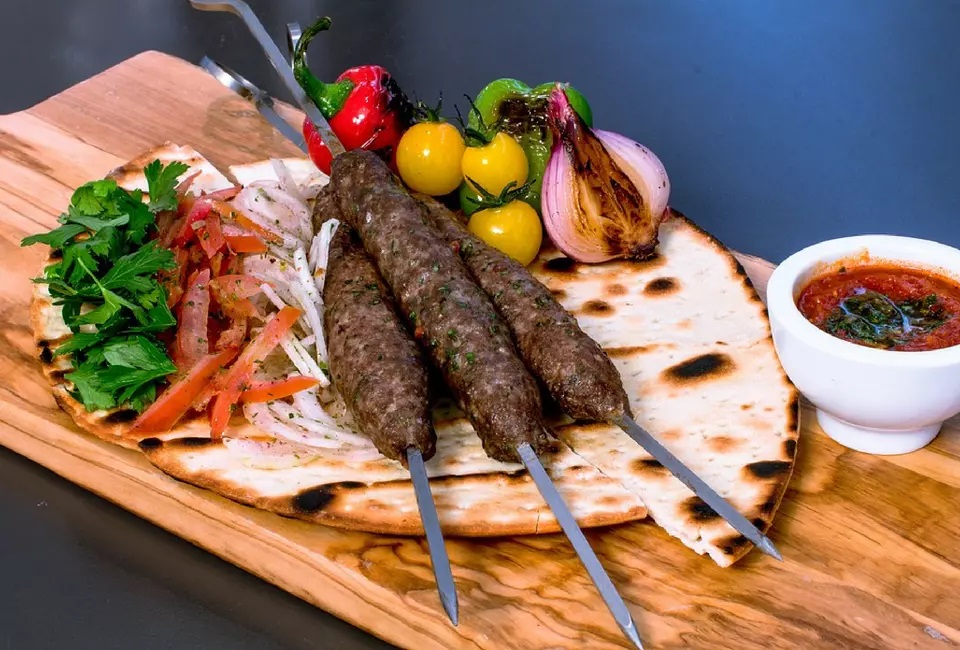
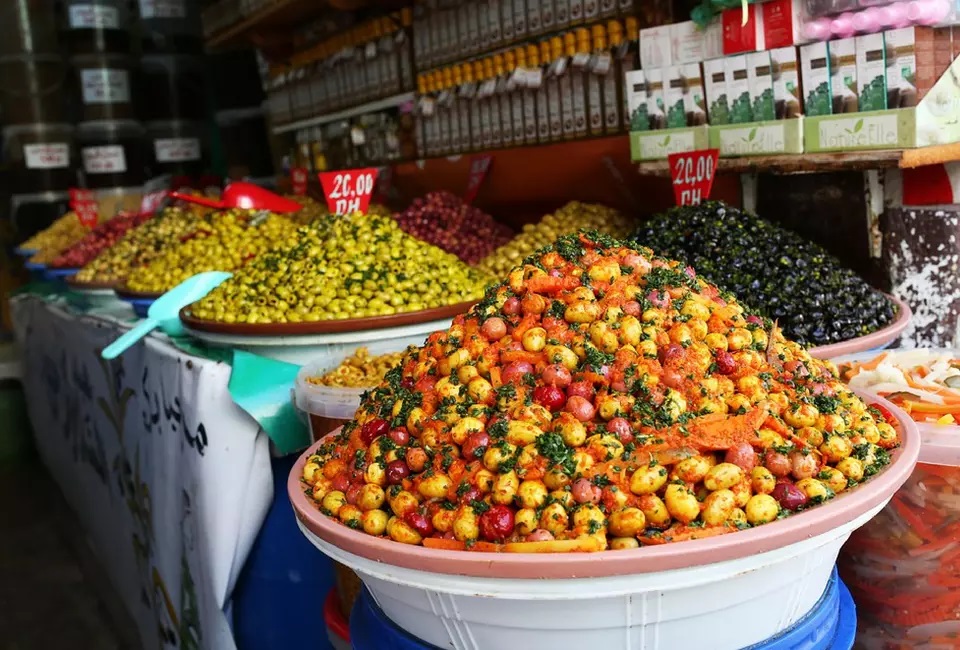
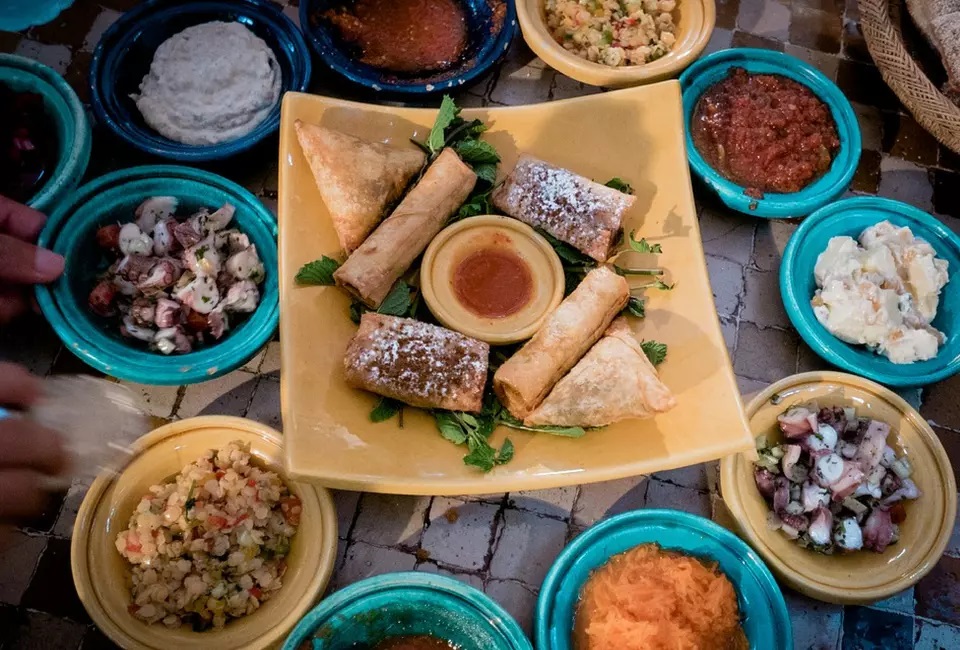
It is worth noting that many Jordanians enjoy a light meal in the early evenings – coffee and pastries for example – and then eat their “main” meal surprisingly late. Very rarely is dinner consumed before 8pm and many restaurants are heaving long after 10pm.
Jordan has a strong culture based around food – whether that is eating out or inviting friends over for a home-cooked meal. As a result Jordanian cuisine is far from all you will find in the major cities. International cuisine – from Italian to French food – is reasonably easy to find. You will also encounter most of the major US fast food brands here like McDonalds and Burger King.
Irrespective of your personal tastes, therefore, you will find that the eating in Jordan is diverse enough to satisfy your needs.
In terms of beverages it is interesting to note that there are two distinct forms of coffee that may be offered to you in Jordan. The first – often known as “Turkish coffee” – is the most common and is sold in restaurants. This coffee has been re-boiled multiple times to produce a unique and unusual flavour and comes pre-sweetened. As a result, when ordering Turkish coffee you will normally be expected to specify how sweet you would like your beverage.
The alternative coffee – Arabic coffee – is also known as “Bedouin coffee” due to its popularity among the native population. It is entirely different in appearance and flavour, being almost green in colour and possessing a refreshing “bite”. Arabic coffee is rarely available to buy in cafes and restaurants; instead, this is the coffee you will most likely be offered when visiting a Jordanian home.
Jordan Crime Rate
As with many other Middle Eastern nations, Jordan is a largely law-abiding nation, with very few crimes occurring. Most visits to Jordan are without any problems whatsoever. There is, however, the odd incidence of pick-pocketing in major cities so visitors are advised to take care with personal belongings.
Arguably the greatest risk comes from the weather, which can prove to be too much for some visitors in the summer months. Ensure you stay well-hydrated and apply suitable sunblock to avoid the worst effects. Visitors are also advised to consider wearing loose-fitting breathable clothing and to avoid venturing outdoors at the hottest part of the day unless absolutely necessary.
As a reminder, the driving standards in Jordan are not up to the standards you may expect so expats and tourists alike should take care on the road. Fortunately the law in Jordan is such that in cases where a vehicle strikes a pedestrian, the driver is found guilty by default. As a result, crossing the road is perhaps rather safer than in some other countries.
Be aware that the border area with Syria has been a historically explosive area, where fighting is not unusual. Stray shells are not uncommon and kidnappings do occur here on a semi-regular basis. At present the Foreign Office therefore recommends avoiding the area for all but essential visits.
Places to Visit in Jordan
Possibly Jordan’s greatest claim to fame is simply the wealth of ancient monuments that have survived for millennia in the dry desert air. However Jordan certainly isn’t living in the past; in many cases, these historical sites are juxtaposed against shiny, modern cities offering every convenience you could imagine.
Qasr Amra
Qasr Amra is considered one of the single most important examples of early Islamic architecture in the world. This stunning castle in the desert is designed as a UNESCO site due to the ancient frescoes which line the inside of the building, and which date back to the early 700’s.
Qasr Amra
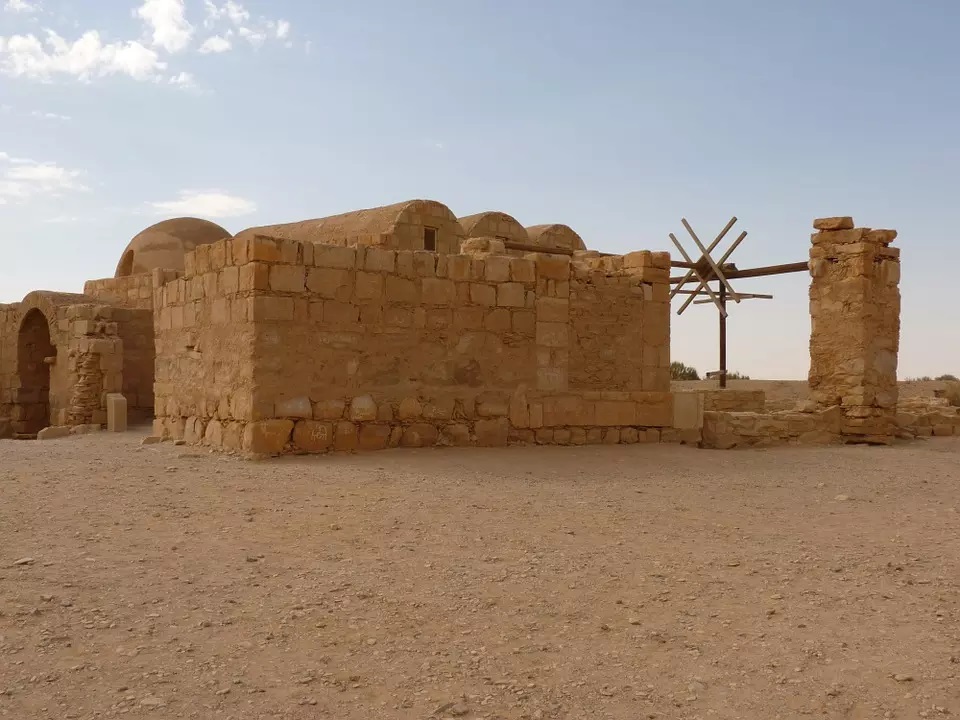
Petra
No visit to Jordan would be complete without exploring world-famous Petra. This incredible city is carved directly into the rose-coloured sandstone rocks, making it one of the most intriguing – and internationally recognisable – tourist destinations of all. Aim to visit early in the day, when the sun is low. As the days wears on, the heat at Petra can become extreme.
Petra
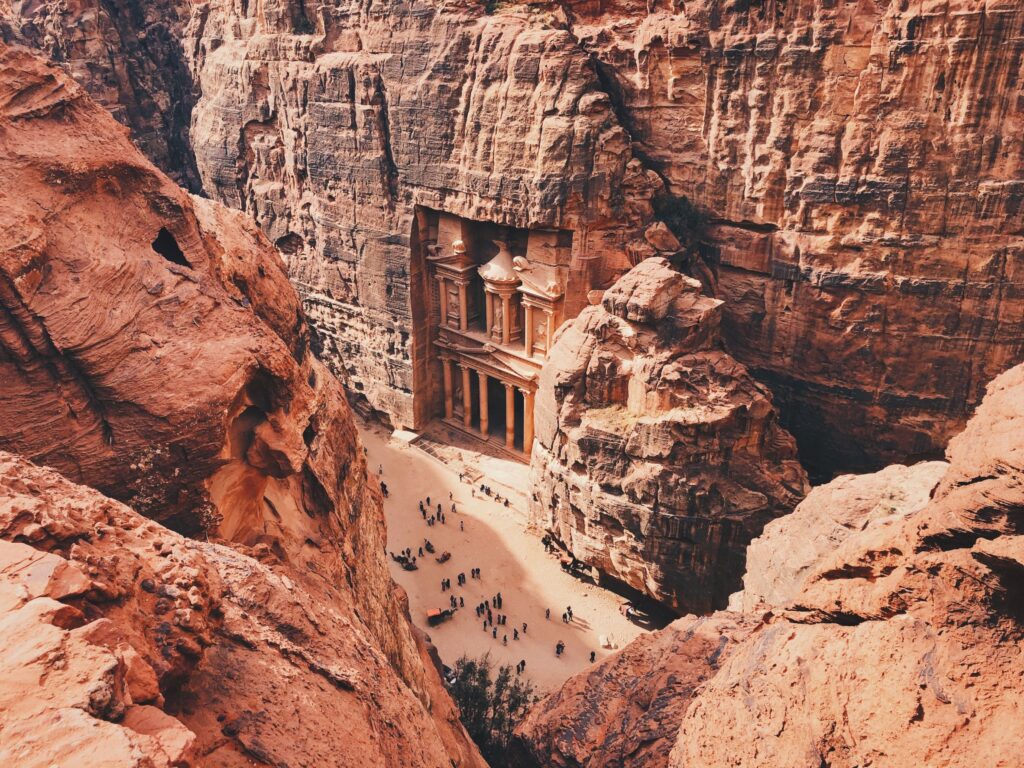
Aqaba
Despite its often oppressive desert heat, there are few places where one can truly escape from the Jordanian climate. Aqaba, however, is different. Jordan’s only coastal city, Aqaba is the perfect location for those who want to enjoy the sand, sun and sea. If you are planning to travel around Jordan and see all that it has on offer, taking a break at Aqaba to relax and unwind (not to mention cool down) can be most welcome.
Aqaba
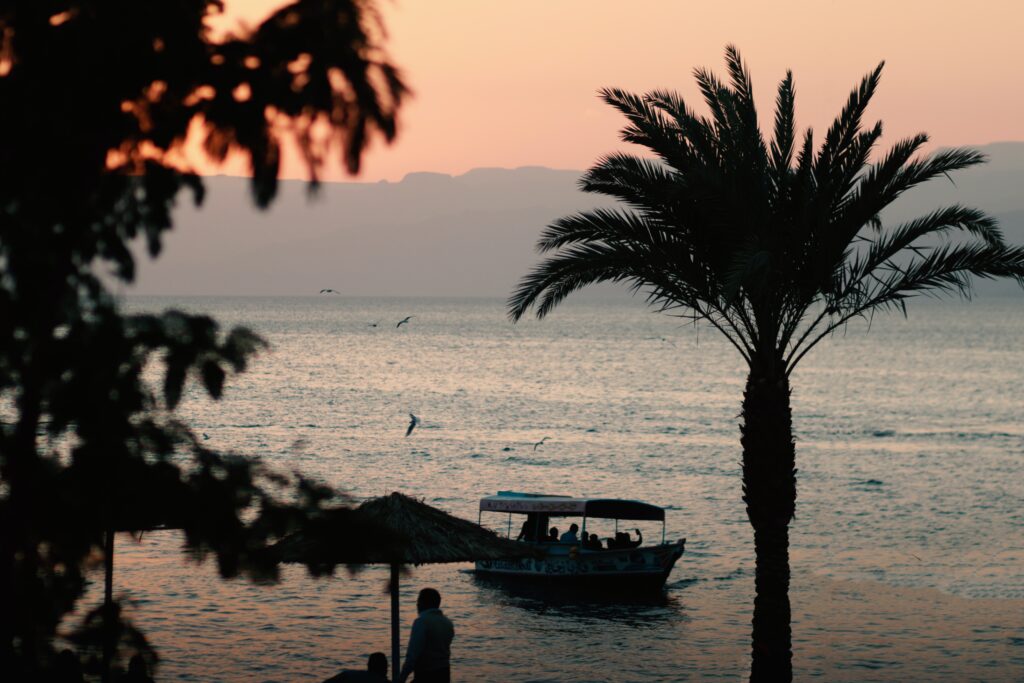
Amman
Jordan’s capital city, Amman is one of the oldest continually-inhabited areas anywhere. Understandably for such a city there is history around every corner. One of the most Westernized cities in the Middle East, Amman is rich with nightclubs and bars, international restaurants and top-quality shopping. It also represents the cultural hub of the country, boasting many museums and galleries, not to mention intriguing architecture.
Amman
